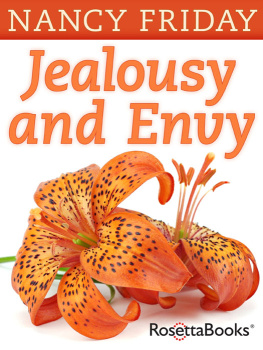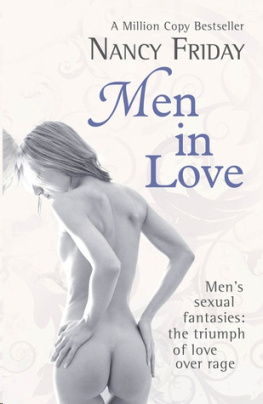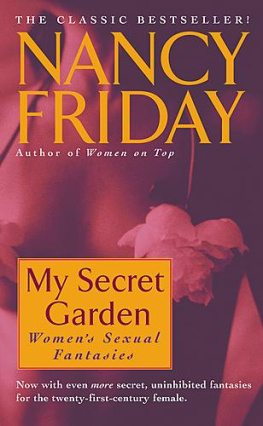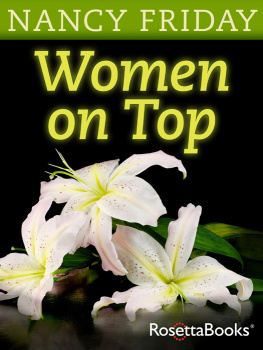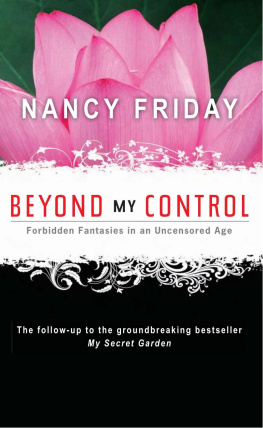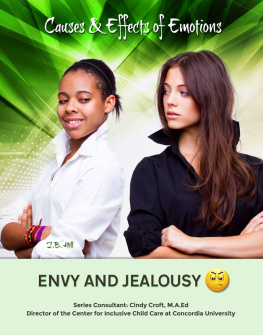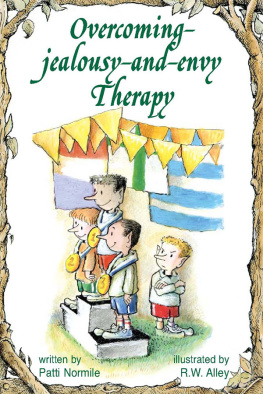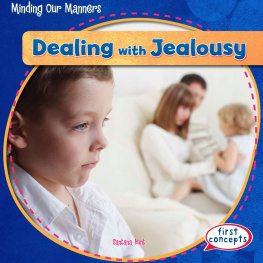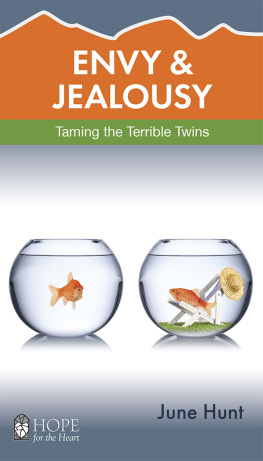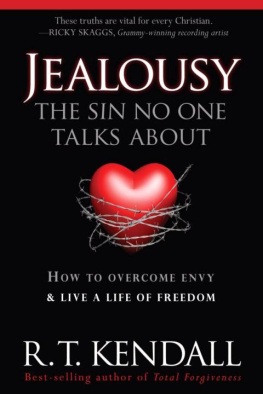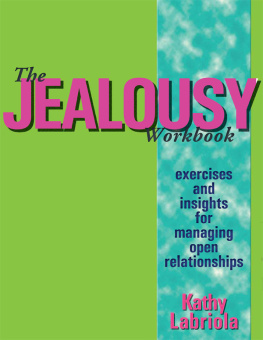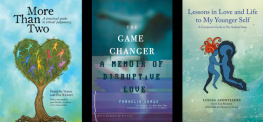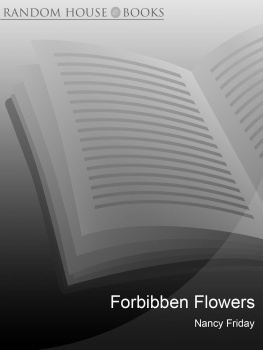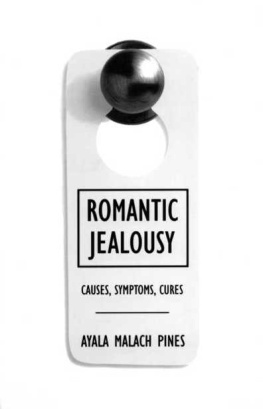I want to thank my dear friend Dick Duane.
Foreword to the 1997 Edition
I write to save my life. Too dramatic? Let me put it this way: My emotional defenses are so impenetrable that only after finishing a book can I recognize the new living space I have created, the substantial ground that was unavailable before.
Today, after seven books and twenty-five years of writing, I can say that my earlier life was totally make-believe, a veritable forest of iron defenses. Neither I nor the world around me were aware of my childish rages, my pitiful unhappiness. That I choose to write about subjects that are at the core of my misery is no tribute to conscious, healthy selection. I remain in awe of the unconscious.
Each of us develops self-protective defenses so as to remain unaware of painful or unacceptable feelings. Usually they are erected so long ago we easily fool ourselves today. With memories blotted out, pride steels us in our refusal to accept anything but the false self we have come to depend on. Who, me, jealous, envious, afraid? Hell no! Better to go down denying, resisting, than admit that our adult rage began in the nursery, when we first realized Mommy didnt love us as much as our sibling. That is why my books invariably begin by probing those defenses first erected in earliest childhood.
This book on jealousy and envy grows directly out of my earlier work on sexuality and the mother/child relationship. Although the sequence might suggest a rational plan, it was in fact my unconscious diligently prodding me towards a healthier life.
The make-believe person I presented before becoming a writer appeared to be totally independent, offering love with no strings, demanding in return no guarantee of fidelity. Hadnt I always been the leader of my group, president of my class, captain of my team? So irresistible was my invitation to friendship and love that people bought it outright. No one dreamed that Ishe who always had a smile on her face and never showed miserywould retreat into a kind of sleep-walking when the phone didnt ring or when my beloved talked too long to another woman (whose looks I instantly framed in beauty as my own would lose their luster). No one could see what a child I was. No one could see the ugly rage that lived below my rigid defenses. Nancy was the happiest little girl in Charleston, they used to say. And I was.
I began My Secret Garden, my first book about womens sexual fantasies, in this state of denial. It was the late 1960s, and I think I saw it as a bravura act, another statement of my totally in-charge self image. Wasnt I a feminist who supported herself, not just economically but emotionally too? The world then seemed eager to embrace womens sexuality. Surely my time had come. Who better than I, a sexual adventurer in reality, to write about womens wild erotic fantasies? I began that book with my own sexual images, only to find that other women, once encouraged to add their voices, were far more honest than I in admitting to guilt, anger, and fear. The more I observed womens anxiety at just thinking, imagining sexual images, the more I allowed my own defenses to break down. At the end of a days work, I would be trembling. Where did it come from, this terror?
I wrote the outline for My Mother/My Self the day I finished My Secret Garden. Until then I had told the world, and myself, that I had the best relationship with my mother of anyone I knew. It was what I had wanted to believe, and given my seemingly impenetrable defenses, I had made it so. The cost to me only became apparent as I hacked my way, one by one, through those defenses, finally finding what was real between us. Along the way, my hair fell out, and for months at a time, I could only write while lying on the floor, my back in spasm. Emotional defenses eat up such large chunks of time, energy, life.
The path to writing this book was more circuitous. Yes, I had written a paper about jealousy while in college, but I consciously thought and told myself that it was about others, not I. Those who were obsessed with it, I thought, made the world intolerable for the rest of us with their childish, whimpering rages. Once I became a writer, I invariably brought up the subject when dining with editors and publishers, reminding them that there was nothing available in popular non-fiction on this fascinating topic. You should do a book on jealousy, I would urge with enthusiasm, but seemingly off the cuff so as not to leave the impression that I, a self-confident, totally in control person, was jealous herself. You write it, and I shall publish it, they would reply. Shocked by the challenge, I feigned disinterest, wondering nonetheless, had they seen through my clever disguise?
And then my house burned down. In one big blaze everything I owned was consumed. For years I had collected the memorabilia of my mothers family, generations of furniture, paintings, and fine old Havilland china. I would weep inconsolably when a delicate porcelain demitasse cup was cracked. Now it was all gone, and I didnt shed a tear. Instead I sat down and typed a thirty-page outline for a book called Jealousy.
To this day I cannot honestly say what it was that provoked me to take on an emotion that I knew had been my undoing. Whether it was rage or sheer guts, it all came down to a feeling of resignation, a kind of What the hell, I might as well look the demon in the eye. It cant get any worse than this.
But it did. My outline contained no mention of envys role in the jealous triangle. Envy, I would learn, is that one emotion in all human life about which nothing good can be said. Jealousy can contain love, a terrible sadness at losing the beloved, but it is envy that makes us want to strike out and kill, yes, even kill the beloved. There is no understanding of jealousy until envy is confronted.
Envy is that malicious feeling that others possess something desirable, an awareness that casts a shadow over our lives, a gnawing in the gut, that wont ease until we destroy the enemys happiness. The feeling behind envy is rage at the power and control this other person has over us and our happiness. The envious feeling begins with the titanic resentment of a child who is powerless and therefore must rely on the omnipotent caretaker. It is the parents job to assuage the howling, red-faced infants sense of powerlessness by being a good enough caretaker. If we didnt get that kind of care back in the nursery, we are left with the original rage whenever we give someone power over us, especially when we fall in love.
Some of us resist love all our lives, cheating ourselves out of happiness but protecting ourselves from something even more powerful, given envys killer edge. Others, like myself, run after the love we never got back then, but in so doing, we are in over our heads. One minute we are high on adoration, but when his arms dont hold us, our errant minds race to the worst scenario. We see our beloved in someone elses arms, or besotted by a face, a body more winning than our own. Queen of the world one minute, we are swallowed up the next by infantile rage. How dare he! We could kill him! And some people do, or they kill the suspected rival. Remember that the first murder suspect is always someone in the family or near and dear to the deceased. Check any police blotter. The target of envious rage in a jealous trianglebe it the beloved or the rivalwould become a fascinating turning point in the writing of this book.

